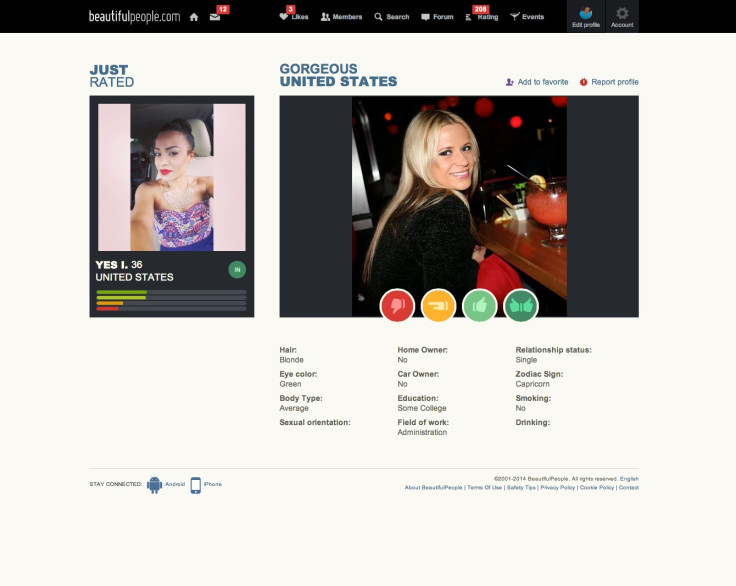Beautifulpeople.com Launches 'Adopt an Ugly Person' Campaign

Dating website beautifulpeople.com is in danger of getting a slap in the face after launching a controversial "Adopt an Ugly Person" campaign aimed at helping less attractive people improve their chances of a date.
The very selective dating site -- for beautiful people only -- requires prospective candidates to submit pictures of themselves to be ranked by existing members who then decide whether or not to accept or reject them.
Since its creation in 2001, at least 7.5 million people have been denied access to the dating site which led the website's owners to launch its philanthropic campaign to provide those who are rejected with advice on how to enhance their beauty.
Managing director Greg Hodge defended the campaign to IBTimes UK as "a way to help people be accepted".
"The website is based on the fundamental principle of human nature: we want to be with someone who is attractive, at least at the initial stage. Our website is like a microcosm of society," said Hodge.
"We have thousands of application every day and people are often not accepted because they do not represent themselves at their best.
"Launching this campaign is our way of helping. We don't just give advice on aesthetics: We have launched a mentorship program and have psychologists and doctors who can provide advice on how to improve dating, personal relationships and self-confidence."
Hodge explained that after the launch of the campaign on Monday, more than 500 people have applied for the mentoring program.
"People fill in a form on what they are specifically looking for and we match them with a specific mentor.
"The mentoring sessions vary, depending on what people need. Sessions last from 45 mins to one hour."
According to Hodge, although its title has been sensationalised and might be seen as offensive, the campaign is "a charitable initiative".
He said the mentoring service, which is now free of charge, might be monetised in the future.
"We always receive criticism because our website is based on looks, but we democratise beauty: users decide what beauty is. They are the judges. And if we can increase the percentage of people who use the website it's a win-win for everyone," Hodge continued.
"Our website just aims at connecting people who need help and advice with those who can help. If you strip away the concept of beautiful people, you can see it is a very positive initiative.
"Mentors have a real desire to help people."
© Copyright IBTimes 2025. All rights reserved.






















